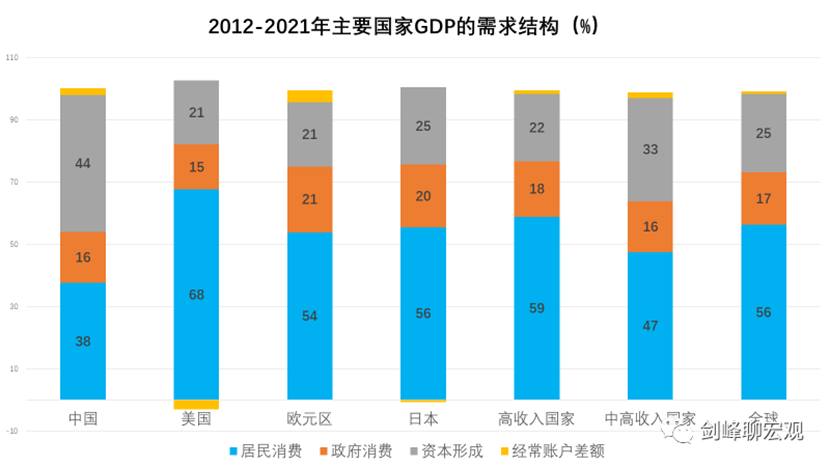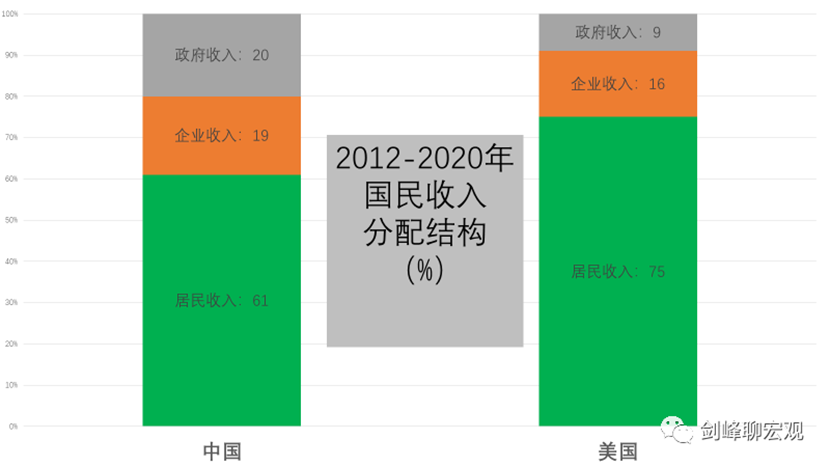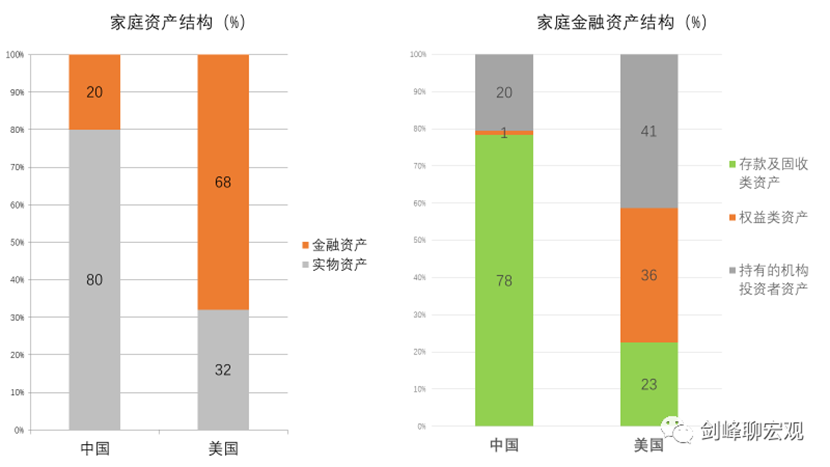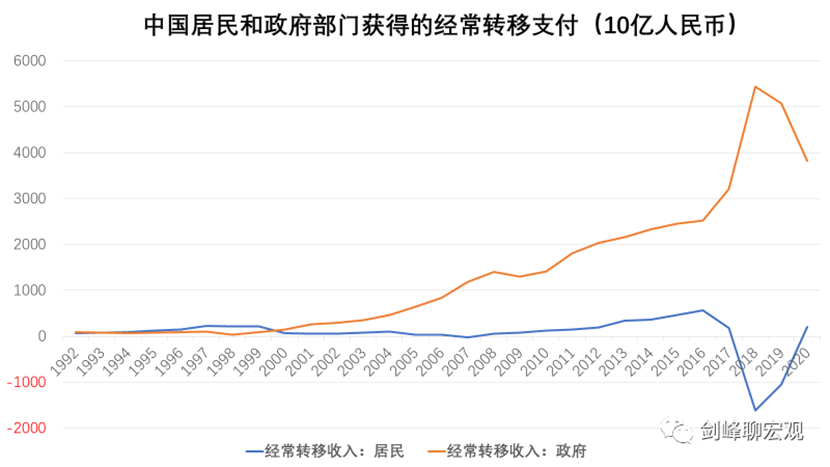Hisilicon is gone?With HiSilicon gone
You are using an out of date browser. It may not display this or other websites correctly.
You should upgrade or use an alternative browser.
You should upgrade or use an alternative browser.
Chinese Economics Thread
- Thread starter Norfolk
- Start date
FriedRiceNSpice
Major
Zero covid policy saved millions of lives. In my opinion, the policy could have been dropped perhaps 6 months sooner, but it's reasonable to err on the side of caution when there are millions of lives at stake. And the policy isn't the sole factor, the current situation and is caused by confluence of changes in policy towards real estate (another temporarily painful measure that will result in long term benefits), US economic imperialist policies towards trade and technology, slowdown in external demand, and being at the tail end of an investment cycle, and all the while dealing with transitioning into a high income, high value add economy where higher wages is leading to loss of advantage in labor intensive low value add industries (a good thing). Yet despite all the headwind, there is still much growth potential, and the economy is still growing at a very respectable rate.Well, i think it was more political than anything. Xi Jinping, made it one of his core policy slogans. So it was hard for him to just say all that was for nothing and a mistake. He got too invested politically with his Zero covid policy to the point that there was almost no turning back from that. In fact it was actually a good thing for the government that Chinese people came out to protest after 3 long years of lockdowns and constant disruptions of their daily lives, this help the president to have a way out with revoking the zero Covid policy, since could just use the protests as a good way to stop that erroneous policy.
This is why even PPP underestimates developing country GDP. The same ton of steel adds more GDP ppp in Germany than in China because German industry is less efficient and workers are paid more.China has a much higher appliance ownership than it's GDP/capita would suggest. Majority of houses in China have air conditioning, while ~25% of houses in Mexico have air conditions. By having a self-sufficient industry, China is able to roll out appliances in a way that most other countries cannot.
Additionally, Chinese resource consumption is much higher than what it's GDP/capita would suggest. Take a look at this following chart and notice the massive disparity.
View attachment 116087
And this is ~4-5 years ago outdated.
The idea that Chinese do not "consume" anything is such obvious BS to anybody that notices how much stuff Chinese are gradually accumulating in their houses.
Interesting that China spends just over 3 times more than India militarily. Thought the gap will be bigger than that. Guess India is spending way more than they need toView attachment 115987
, ranked second in absolute terms, accounts for another 13% of world military expenditure at $292 billion.
Yeah, then they should have continued with the zero Covid policy. Afterall, every life is important. Why stop it and go back to square one again? This still led to many people getting infected and dying. Same thing would have happened anyway, except they were prepared to carry on with zero covid forever.Zero covid policy saved millions of lives. In my opinion, the policy could have been dropped perhaps 6 months sooner, but it's reasonable to err on the side of caution when there are millions of lives at stake.
Plus i dont see the difference between 6months you mentioned and the time they stopped it due to protests. Not much of a difference.
In the case of Huawei they have basically been kicked out of Western markets already. At best they provide support services for existing equipment. So what would they lose with supporting the Russian market then? They still have not gotten their own vertically integrated supply chain, which means they are still using Western sourced components.Why are you blaming Chinese private companies.they are running a business dude, not charity or feelings/emotions. So they have shareholders to answer to and if it doesn't make business sense then they won't do it. Thats gow things work in the business world. They have to weight the pro and cons . If its more advantageous for them to relain in Russia they would have done so, the fact that they didnt shows they had far more to lose by risking full western sanctions and banned from market on their business.
HiSilicon used to be in the top 25 IC companies in the world by revenue. Now their revenue basically evaporated.Hisilicon is gone?
"HiSilicon’s revenue declined to US$1.5 billion last year, down from US$8.2 billion in 2020, according to research firm Gartner"
Huawei kept its operations by targeting different business sectors where the sanctions do not hit as deeply, and increasing the profit margins on their existing business. But the US seemingly has succeeded in severely wrecking Huawei's semis business, which was their objective all along, since Huawei was competing with Qualcomm, Apple, and Cisco. Not anymore.
We also had reports that a huge portion of Huawei's chip design talent moved to Unisoc. We still have not seen any major results out of this in terms of products. But Unisoc already beat HiSilicon in terms of revenue in 2021.
Foreign investment in China remained stable in the first half of this year, and the country saw rapid growth in the number of newly established overseas enterprises, China's Ministry of Commerce (MOFCOM) said on Wednesday, as executives from multinational corporations have been visiting China to seek new opportunities for investment cooperation opportunities.
Vice Minister of Commerce Guo Tingting said that from January to June, the country saw 24,000 newly established foreign invested firms, an increase of 35.7 percent. The actual use of foreign direct investment (FDI) amounted to 703.7 billion yuan ($97.6 billion), down 2.7 percent year-on-year.
"It is not easy to achieve the results as major FDI source countries are facing different economic pressures," Li Yong, a deputy chair of the expert committee of the China Association of International Trade, told the Global Times on Wednesday.
The increase in the number of new foreign-funded enterprises indicates the confidence of foreign investors in China's growth prospects and investment environment, Li added.
Capital investment in China from developed countries continued to grow, with investment from France surging 173.3 percent and that from the UK growing 135.3 percent. Japan's investment in China grew 53 percent and that from Germany was up 14.2 percent, according to Guo.
Li said that the Chinese market offers more opportunities and possibilities for growth for companies from countries like France and the UK, and enterprises in those countries have more room for independent investment decision-making.
On Wednesday, the third phase of Schneider Shanghai Power Distribution Electrical Appliance Co's factory was completed. This is a new digital and automated "zero-carbon factory" built by Schneider Electric. With the completion, the overall production capacity is expected to increase by 30 percent.
"The plant's establishment is another testimony to showcase our confidence in China," said Yin Zheng, executive vice president of China and East Asia operations. Rooted in China for 36 years, the company has kept on investing in innovation and supply chains in China.
In 2022, against the backdrop of a 12 percent decline in global cross-border investment, China's FDI rose 6.3 percent, with the actual use of FDI reaching 1.2 trillion yuan, an increase of 8 percent, Zhu Bing, a MOFCOM official, said.
Executives of multinational corporations have continued to visit China to seek new opportunities for investment and cooperation. They said that the Chinese market contains massive development opportunities, which are not "optional" but "mandatory," and they will continue to increase their investment in China according to Zhu.
"In the second half of the year, a number of executives of multinational companies plan to visit China, and we will provide maximum convenience for them to come to China to inspect the investment environment, buttress their development strategies and discuss cooperation projects. We welcome multinational companies to continue to invest in China and share the dividends of China's huge market and open development," Zhu said.
The National Development and Reform Commission, the country's top economic planner, said on Tuesday that it will formulate policies to attract more foreign investment, expand market access and comprehensively optimize business environment.
It will strengthen communications with foreign enterprises and foreign chambers of commerce, coordinating and addressing in a timely manner the problems and requirements of all foreign enterprises.
Another indication of economic recovery
China’s revenue from taxes surged 16.5 percent in the first six months from the same period last year, thanks to the rebound in the economy and last year’s low base line, and much faster than the country’s gross domestic product growth rate of 5.5 percent over the period.
China’s tax haul in the six months ended June 30 came to almost CNY10 trillion (USD1.4 trillion), according to the latest data.
The large-scale value-added-tax refunds rolled out by the government from April last year have now come to an end, Xue Xiaoqian, deputy head of the Ministry of Finance’s treasury payment center, said at a press briefing yesterday. This has greatly boosted the country’s tax revenue from VAT which surged 96 percent in the first six months year on year to CNY3.7 trillion (USD522.4 billion).
But revenue from corporate income tax slumped 5.4 percent over the period, as corporate profits continue to be squeezed. And revenue from personal income tax dipped 0.6 percent. This is directly connected with the economic downturn which has resulted in layoffs and pay cuts in some sectors as well as a high youth unemployment rate, several experts told Yicai Global.
The high tax income spurred the country’s general public budget revenue in the first half to surge by 13.3 percent year on year to CNY11.9 trillion (USD1.6 trillion).
But non-tax revenue, such as the sale of land use rights, dipped 0.6 percent over the period to CNY2 trillion (USD278.3 billion). The sale of land use rights has been slow due to the sluggish property market.
“The overall recovery in China’s economic operations and the sound long-term growth momentum will offer significant support to the increase in fiscal revenue,” Xue said. "However, now that VAT refunds are back to normal, the monthly growth in China’s fiscal revenue will narrow,” he added.
Tax and fee rebates for this year are expected to reduce taxes by CNY1.8 trillion (USD250 billion). Last year, VAT refunds amounted to CNY2.2 trillion.
Local Coffers
Local governments’ revenue jumped 13.5 percent over the period to CNY6.5 trillion (USD904 billion) and all 31 provincial-level regions achieved yearly growth.
During the first half, China’s general public budget expenditure advanced 3.9 percent year on year to CNY13.3 trillion (USD1.8 trillion). The majority of this went on supporting people’s basic livelihood, rural revitalization, regional strategies, education as well as key science and technology programs, Xue said.
In the first half, expenditure by government funds narrowed 21.2 percent from a year earlier to CNY4.3 trillion (USD598.5 billion), thanks to the issuance of local government special bonds, but it was still almost double the revenue raised by government funds.
China’s general public budget revenue is expected to climb 6.7 percent this year from the year before, according to the 2023 budget reports from the country’s central and local governments.
China’s revenue from taxes surged 16.5 percent in the first six months from the same period last year, thanks to the rebound in the economy and last year’s low base line, and much faster than the country’s gross domestic product growth rate of 5.5 percent over the period.
China’s tax haul in the six months ended June 30 came to almost CNY10 trillion (USD1.4 trillion), according to the latest data.
The large-scale value-added-tax refunds rolled out by the government from April last year have now come to an end, Xue Xiaoqian, deputy head of the Ministry of Finance’s treasury payment center, said at a press briefing yesterday. This has greatly boosted the country’s tax revenue from VAT which surged 96 percent in the first six months year on year to CNY3.7 trillion (USD522.4 billion).
But revenue from corporate income tax slumped 5.4 percent over the period, as corporate profits continue to be squeezed. And revenue from personal income tax dipped 0.6 percent. This is directly connected with the economic downturn which has resulted in layoffs and pay cuts in some sectors as well as a high youth unemployment rate, several experts told Yicai Global.
The high tax income spurred the country’s general public budget revenue in the first half to surge by 13.3 percent year on year to CNY11.9 trillion (USD1.6 trillion).
But non-tax revenue, such as the sale of land use rights, dipped 0.6 percent over the period to CNY2 trillion (USD278.3 billion). The sale of land use rights has been slow due to the sluggish property market.
“The overall recovery in China’s economic operations and the sound long-term growth momentum will offer significant support to the increase in fiscal revenue,” Xue said. "However, now that VAT refunds are back to normal, the monthly growth in China’s fiscal revenue will narrow,” he added.
Tax and fee rebates for this year are expected to reduce taxes by CNY1.8 trillion (USD250 billion). Last year, VAT refunds amounted to CNY2.2 trillion.
Local Coffers
Local governments’ revenue jumped 13.5 percent over the period to CNY6.5 trillion (USD904 billion) and all 31 provincial-level regions achieved yearly growth.
During the first half, China’s general public budget expenditure advanced 3.9 percent year on year to CNY13.3 trillion (USD1.8 trillion). The majority of this went on supporting people’s basic livelihood, rural revitalization, regional strategies, education as well as key science and technology programs, Xue said.
In the first half, expenditure by government funds narrowed 21.2 percent from a year earlier to CNY4.3 trillion (USD598.5 billion), thanks to the issuance of local government special bonds, but it was still almost double the revenue raised by government funds.
China’s general public budget revenue is expected to climb 6.7 percent this year from the year before, according to the 2023 budget reports from the country’s central and local governments.
In the case of Huawei they have basically been kicked out of Western markets already. At best they provide support services for existing equipment. So what would they lose with supporting the Russian market then? They still have not gotten their own vertically integrated supply chain, which means they are still using Western sourced components.
HiSilicon used to be in the top 25 IC companies in the world by revenue. Now their revenue basically evaporated.
"HiSilicon’s revenue declined to US$1.5 billion last year, down from US$8.2 billion in 2020, according to research firm Gartner"
Huawei kept its operations by targeting different business sectors where the sanctions do not hit as deeply, and increasing the profit margins on their existing business. But the US seemingly has succeeded in severely wrecking Huawei's semis business, which was their objective all along, since Huawei was competing with Qualcomm, Apple, and Cisco. Not anymore.
We also had reports that a huge portion of Huawei's chip design talent moved to Unisoc. We still have not seen any major results out of this in terms of products. But Unisoc already beat HiSilicon in terms of revenue in 2021.
we really don't know it's revenue now, because HW's AI/HPC chips have taken off with the recent boom and they are being intentionally quiet about how well they are doing.
Hisilicon is still the most capable in China amongst fabless division
In the case of Huawei they have basically been kicked out of Western markets already. At best they provide support services for existing equipment. So what would they lose with supporting the Russian market then? They still have not gotten their own vertically integrated supply chain, which means they are still using Western sourced components.
HiSilicon used to be in the top 25 IC companies in the world by revenue. Now their revenue basically evaporated.
"HiSilicon’s revenue declined to US$1.5 billion last year, down from US$8.2 billion in 2020, according to research firm Gartner"
Huawei kept its operations by targeting different business sectors where the sanctions do not hit as deeply, and increasing the profit margins on their existing business. But the US seemingly has succeeded in severely wrecking Huawei's semis business, which was their objective all along, since Huawei was competing with Qualcomm, Apple, and Cisco. Not anymore.
We also had reports that a huge portion of Huawei's chip design talent moved to Unisoc. We still have not seen any major results out of this in terms of products. But Unisoc already beat HiSilicon in terms of revenue in 2021.
Any plans of making the yankees pay back for loss of revenue?




